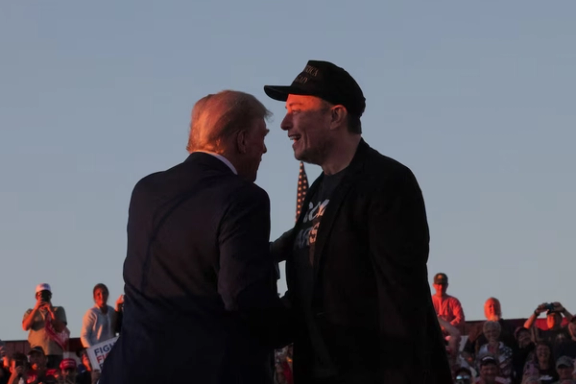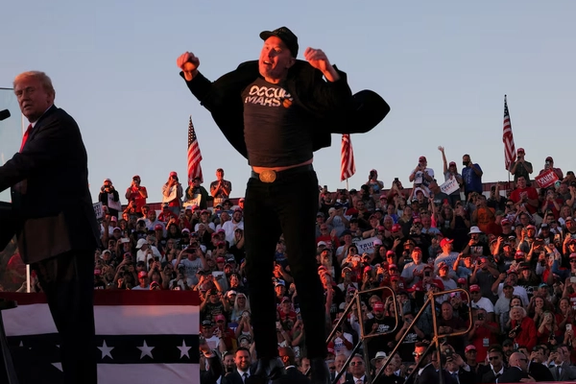Elon Musk supports Israel, blasts Iran at Trump campaign rally

Elon Musk, the billionaire CEO of Tesla and SpaceX, took center stage at a campaign event for Donald Trump in Pennsylvania, where he criticized Iran and voiced strong support for Israel.

Elon Musk, the billionaire CEO of Tesla and SpaceX, took center stage at a campaign event for Donald Trump in Pennsylvania, where he criticized Iran and voiced strong support for Israel.
Musk, who has become a prominent supporter of Trump’s 2024 presidential campaign, has taken a more active role in US politics, particularly in matters involving the Middle East.
During the event, Musk delivered a speech that emphasized the threat he believes Iran poses to both Israel and the United States.
"You obviously can't have people who want to slaughter everyone in Israel. You’ve got to stop that. Those people either need to be killed or incarcerated, or they will simply try to kill more Israelis,” Musk said, addressing the crowd.
Musk linked the threat to the broader geopolitical rivalry between Iran and the West. “And they want to kill Americans too. Israel is referred to as the ‘little Satan’ and America, we are the ‘big Satan’, that's what the Ayatollah calls us,'" he added, reflecting concerns frequently expressed by US policymakers about Iran's rhetoric and regional ambitions.
The event comes as tensions remain high in the Middle East, particularly between Iran and Israel. Iran's ballistic missile attack on Israel on October 1 and Israel’s pledge to retaliate have drawn international concern.
Following Hamas's October 7 attack on Israel, Elon Musk urged Iran’s Supreme Leader Ali Khamenei to reconsider his anti-Israel stance. Musk posted on his social media platform, X, where Khamenei also has an account.
He stated, “Khamenei’s official position is clear that the eradication of Israel is the actual goal, not just supporting Palestinians,” adding, “That will never happen.”
Musk has not limited his involvement to speeches. His venture, Starlink, has played a role in providing internet access in countries experiencing conflict or state suppression. Musk first activated Starlink in Iran in late 2022 during widespread protests sparked by the death of Mahsa Amini, a young woman who died in custody after being arrested by the country’s morality police. The satellite internet service, according to Musk, was a tool to help Iranians bypass their government’s internet shutdowns and access global communication platforms during the protests.
However, the operation of Starlink in Iran remains fraught with challenges. While devices are smuggled into the country, it is potentially illegal given the government's policy of internet censorship, and those using it face risks. Musk compared the situation in Iran to Starlink’s deployment in Ukraine following Russia’s invasion, though the scale of operations remains much smaller in Iran.

Once seen as a tech innovator with libertarian-leaning ideals, Musk has now emerged as one of Trump’s most influential backers. His America PAC, largely funded by his own wealth, has poured millions into voter turnout efforts in swing states like Pennsylvania, Georgia, and Wisconsin. His financial contributions, coupled with personal appearances at rallies, are part of a broader strategy to mobilize conservative voters ahead of the November 2024 election.
As the 2024 US presidential election approaches, Musk’s words resonate not just in the political arena but also in international geopolitics, especially concerning the future of US-Iran relations and the security of Israel.